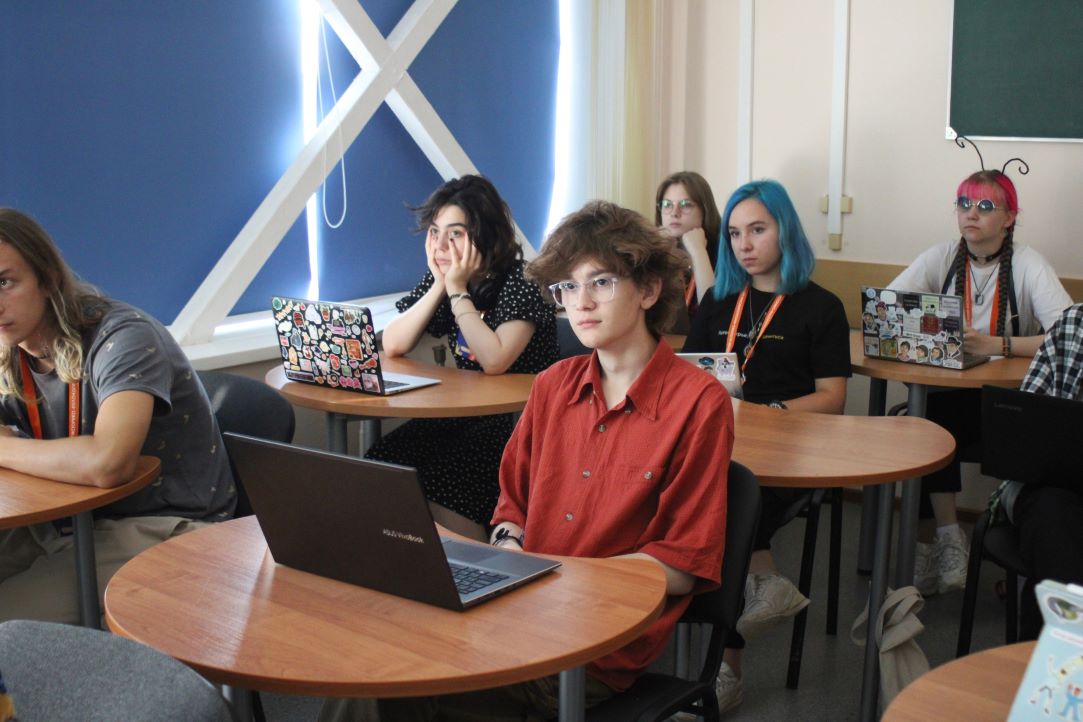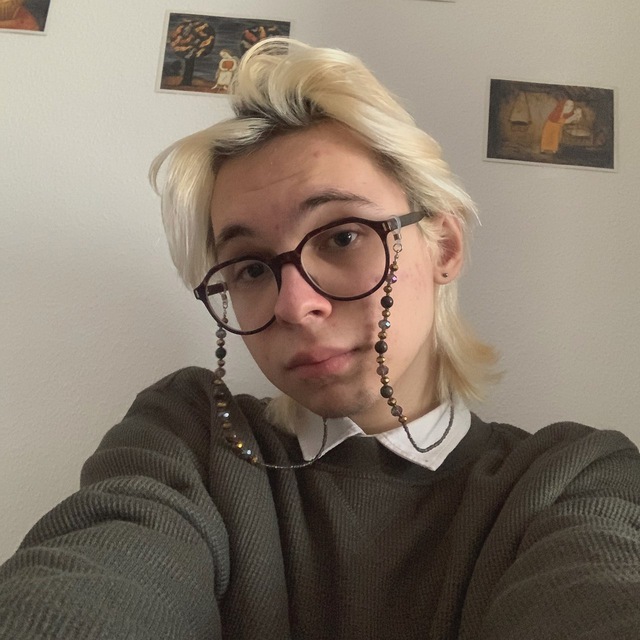Unlocking Humanities with Highschool Students

The school's program combines lectures and seminars on History, Philology, Art History, and Cultural Studies delivered by teachers, staff, and students of HSE. During leisure time at the school, participants can engage in intellectual and sports games, creative entertainment, and workshops, ranging from morning yoga to evening intellectual quizzes.
We spoke with Alexander Shotin, a second-year student in the Philology program, about his experience participating in the school as a curator and creator of his own seminar course. We learned how the project helps him develop as a researcher and young teacher.

Alexander Shotin, a second-year student in the Philology program
I learned about the Summer School of History and Philology when I was still in the 11th grade. Even then, this project seemed quite interesting to me because the description of the school and the courses they offered were quite unusual. I found out about the spring online intensive rather than the summer session, and I even applied. I really wanted to participate, but unfortunately, it didn't work out for me.
In my first year at university, they offered us in our French group to participate in the Summer School of History and Philology as curators, and this would count as summer practice. I agreed to this primarily for that reason. So, my participation in the school initially was more technical, to count towards this summer practice. Plus, it seemed to me a good opportunity not to spend the whole summer doing practice, dealing with computers, spreadsheets, and texts, which often makes summer practice in the philology educational program quite monotonous. I simply thought that the Summer School of History and Philology was a good opportunity to make this summer practice interesting and useful.
In general, I've always somewhat enjoyed working with people younger than me, with children. Besides, I also like the atmosphere of field schools and camps. So, initially, my goals were technical, but gradually I became part of the team. The values that exist at the Summer School of History and Philology seemed important to me, in particular, the attempt to build some academic community, recreate a bit of a university atmosphere with the freedom to choose my schedule and subjects. Perhaps, first and foremost, I liked this aspect, plus the community itself — very kind, wonderful, sharing my values in general.
Curators primarily deal not with educational aspects, but rather with entertainment, daily life, and psychological matters. Like a plumber, animator, and psychologist all rolled into one — not in the sense of fixing things, but in helping children resolve everyday problems. We organized entertaining events such as a quest to explore the Voronovo territory where the school was located. We arranged intellectual games and various team activities. Additionally, my duties included waking up junior colleagues and putting them to bed, not to disturb them or force them to sleep, but to have private conversations, discussing their daily experiences and any problems or difficulties they faced. During such camps, all sorts of things happen: some feel homesick, others simply aren't accustomed to it, and some clash with roommates due to different personalities, and so on. It's important to listen to the children, offer advice if needed, and understand their difficulties, as they trust you as a confidant. Overall, it was a very interesting experience for me because I genuinely enjoy working with children. Rather than draining me, it energizes me. It was very comfortable for me to work with children, probably because I mostly got along with really good kids. It was incredibly interesting to talk to them; they asked me about my studies and experiences. This constant exchange is probably what I liked most about working as a curator. Of course, there were teenagers with whom it was difficult to get along, and it was challenging to work with them. At the same time, you have to maintain authority because if a child says something inappropriate or unpleasant, you have to politely and gently correct them. Sometimes it was quite difficult. Now I have respect for all teachers and everyone who works with children. I understand that they may hold back aggression that could be directed at a child, but it shouldn't be.
The Summer School of History and Philology was not my first teaching experience, but it was the most comprehensive and continuous. Before that, I had experience giving a small number of lectures as part of various courses for children, where only one session was required. So, I had some background, but it wasn't very extensive. Here, I had to teach a course for a whole week together with my colleague Ekaterina Mozharovskaya.
The Summer School of History and Philology stands out precisely because of its comprehensiveness. It's not just about covering a single topic in an hour and a half; it's a sequence of themes, a conceptual course that immerses children in a scientific field that is interesting to you personally. With Ekaterina, we conducted a course on memory studies using materials from 20th-century Russian literature. We discussed trauma, various categories of memory, why it's important to talk about the past, how to discuss history, and some dark and unpleasant historical events. This sequence, I think, really distinguished my teaching experience at the school because it offered such a comprehensive picture.
In terms of my development as a teacher, the school definitely helped me. There were very intelligent children who sometimes asked incredibly tricky questions, testing my teaching competencies overall, my ability to stay on topic without straying. The kids constantly challenged my logic. Once, I was stumped by a question about Bulgakov; I couldn't come up with an answer no matter how hard I thought. The Summer School of History and Philology pushes you, as a teacher, to think on your feet, to come up with new answers because the children are incredibly smart, diligent, and curious. It's just very enjoyable to work with them. All of this fuels my interest in the teaching profession and teaching skills. It's much better than giving a lecture where the kids don't ask a single question. This format is much cooler, much more interesting.
The course that Ekaterina and I developed was centered around our academic interests in Memory Studies. In part, I was testing out some of my own findings from previous and subsequent research during the course. For instance, this year, my coursework was dedicated to examining the existence of two types of victims in the Soviet Union: "sacrifice" and "victim," and how they differ based on the material I reviewed. Part of this theme was explored together with the children at the school. When you try to explain something in very simple terms to people much younger than yourself, you understand better what you are talking about. When I write a term paper or any academic work, I try to build it gradually, complicating the text and introducing new terms. It's the same with teaching. My academic work closely relates to the material I teach, but the format encourages me to think about the composition of the lessons, to work on their structure. Also, the theme of my coursework this year resonates strongly with the course we will be conducting at the upcoming summer school: about the Soviet myth. Why are pioneers so admiring of Lenin? Why are pioneers willing to die, and so on. We will be discussing these topics, which are also the focus of my academic work.
The Summer School of History and Philology indeed helps integrate into the profession. I think it's because the school focuses on forming an academic community, so people who have no connection to science, those who don't want to write articles or engage in research, don't end up there. Indeed, all the teachers and curators there are people with passion. On one hand, at the school, connections are formed, you learn what colleagues are doing, exchange interesting academic literature if your topics are related, share experiences, and discuss your own research. On the other hand, you simply support each other.
Interviewed by

